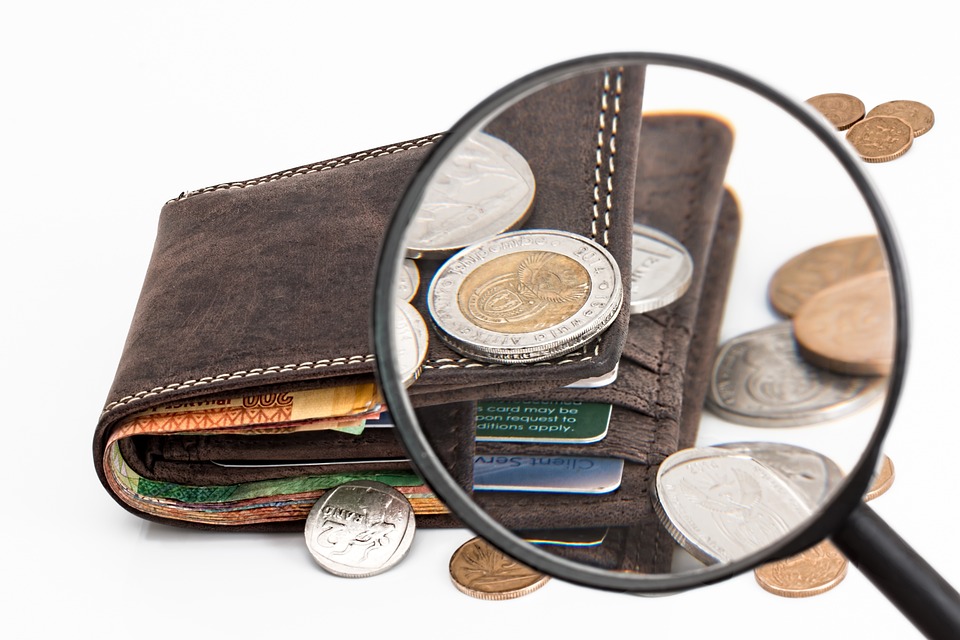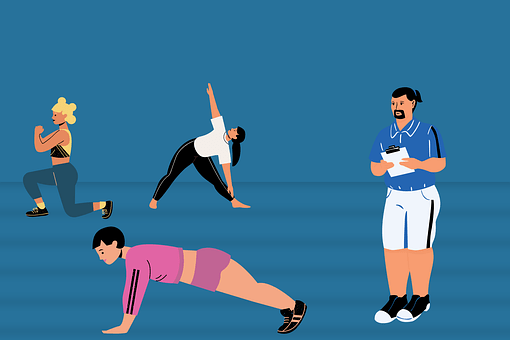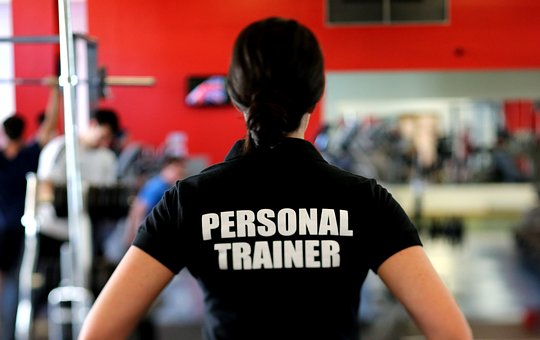
What Is Financial Literacy?
Managing your money is a personal skill that can help you a lot throughout your life, but not everybody learns how to do it. It can be very overwhelming to keep track of your money, especially when there are so many things to pay for and you are responsible for making smart financial decisions.
One would assume that given the significance of the skill, it would be taught in high school (or even sooner), but that is not reality. You need to have a basic understanding of credit and be willing to take responsibility for your own finances to manage your money effectively. This means that you pay your bills on time and do not allow yourself to become overwhelmed with debt. You understand that it is sometimes necessary to give up short-term wants and needs in order to achieve long-term goals.
Your budget. You save. You protect your savings. When you spend, you spend wisely. You only make big purchases for things that are worth your while.
Good debt is defined as something that will help you make more money in the future, while bad debt is something that will lose you money. You always keep an eye on your finances as a whole – your income, savings, and investments. In addition to knowing what you do, you are also aware of what you do not know. When assistance is required, you ask for help.
To be financially literate is to have the ability to manage money in a way that doesn’t interfere with happiness or the ability to retire comfortably.
How to Manage Your Money
It is important to manage your finances correctly, which should guide your everyday decisions regarding spending and saving. It is recommended by personal finance experts that people take the time to learn the basics of things like how to manage a checking or debit account, and how to pay bills on time. Once these basics are learned, people can start to build on that knowledge.
To manage your money properly, you need to be constantly aware of your spending and your bank balance. Don’t try to live beyond your means.
Money in the Bank
Developing financial acumen starts with opening a bank account. Once you have a paycheck, set up direct deposit. This prevents you from having to pay interest to cash advance companies that charge a percentage of your check and keeps your money secure.
Having a bank account provides convenience, access to a choice of benefits, and safety. Checks and debit cards offer a way to keep track of your spending by providing a record of all transactions. This can be helpful in budgeting and understanding where your money goes. The FDIC guarantees that your savings are insured for up to $250,000.
You have a few different choices for what kind of account to use as your main account for saving your paychecks. The majority of people select a checking, debit, or savings account, or some combination of the three. Credit cards offer the convenience of not having to carry cash around and the ability to set up automatic payments for monthly bills. Each option comes with certain benefits and disadvantages. You should consider the various fees that come with an account before choosing one. This includes things like overdraft fees, monthly fees, withdrawal fees, and other maintenance fees.
You should have a savings account that you can use to cover unexpected costs and emergencies, such as a broken arm, flat tire, or an increase in school tuition.
Not having both a checking and savings account can be bad because it is difficult to know how much money you can spend and how much you should save. If you have all your money in a checking account, it is easy to spend your savings. A savings account will generate interest that you will miss out on if you do not have one.
With money in an account, you can start spending. This is where you need discretion. Learn to differentiate between necessities and luxuries. You can use mobile banking to keep track of your spending and see how much is left in your account.
If you want to make the most of the money in your bank account, you should start budgeting right away.
Budgeting
It’s easy to understand budgeting, but it’s difficult to do because it requires being honest with yourself about your finances.
You will need to analyze and probably change your spending habits when you budget. You should be in control of your money instead of your money controlling you. There are some habits that you can develop to help you save money, avoid financial crises, and maintain peace of mind.
A successful budget plan clearly defines:
- How to follow a monthly spending plan
- Ways for lowering your monthly bills
- How to handle accrued debt
- Debt pay-off options like the snowball and avalanche methods
- How to distinguish between short-term, medium, and long-term goals
- A breakdown of family needs
Financial Literacy & Personal Finance Basics
How do you get started budgeting? Simple: you plunge right in. Figuring out where your money is going is key to finding your financial weak spots.
Some steps:
1. Start tracking your monthly expenses
Write down every time you spend money in a notebook or mobile app. Be diligent about this, because it’s easy to forget. This is the foundation for your budget.
2. Identify fixed and variable expenses
These are examples of monthly expenses that cannot be changed: rent, mortgage, car payment, the electric bill, water bill, and student loan payment. These are typically going to be your expenses that involve spending cash. Variable expenses are costs that increase and decrease each month and ones that come and go – groceries, pet supplies, haircuts, concert tickets, etc. These expenses usually involve spending cash.
3. Add up the totals
Every three months, calculate how much you have spent on average per month. And look at the categories.
4. Study your variable expenses
This is where most people tend to overspend. What monthly expenses give you the most pleasure and do you feel that these costs are worthwhile? And which ones can you really do without? Be honest, and start cutting. This is the beginning of the hard decisions.
5. Factor in savings
Put money into savings before paying other expenses. You should put a portion of each paycheck into savings. Making this one practice a habit will provide benefits throughout your life.
6. Now set your budget
To save money, you need to cut back on your fixed and variable expenses. You should decide how much money you want to save every week or every two weeks. The money remaining is what you will have to live on.
If you want to be successful at budgeting, you need to be honest about your spending habits and create a plan that you can stick to. If you want to be good at saving money, you need to start by creating a budget and sticking to it. The more time and effort you put into your budget today, the better you will be able to maintain a life-long savings habit.
Credit or Debit?
Most people own some type of plastic card, like a debit card, credit card, or a combination of the two, in addition to cash and a bank account. How you use these tools affects your ability to get a good credit score and avoid developing a borrowing problem.
If you want to be financially conservative, experts recommend either using only a debit card or using both a debit and credit card, but only using the credit card for occasional major payments that you can immediately pay off. This advice is commonly given to people who have built up a lot of debt.
One way to develop responsible spending habits is to start with one of each card. This can provide convenience as well. Look at the benefits you would get from each card, especially if you travel a lot or buy things in high quantities often.
If you only use a debit card, you will only spend money that you already have. Debit cards can be linked to your checking account, where your paychecks are automatically deposited.
Debit cards offer an unlimited number of transactions and rewards based on frequent use. By using a debit card, you can spend money without carrying cash and the funds will be withdrawn from your account immediately.
Because the card is so easy to use, you need to be careful not to overspend and lose track of your spending. If you’re not careful, you can end up paying a lot of money in overdraft fees.
Some businesses require you to use a credit card. These include hotels, car rental companies, and others. If you only need to use an account occasionally, it might be a good idea to get one specifically for that purpose. You can start building your credit history by using the grace period between making a purchase and having to pay the bill. An additional advantage to using credit instead of cash is the extra protections given by the issuer. A credit card can be a safer option than a debit card when shopping online or making larger purchases.
If you rely on your credit card to make purchases, you may end up taking on serious debt. If you decide to have a credit card, the best thing to do is pay the entire balance every month. If you carry over a balance on your credit card from one month to the next, you will probably have to pay interest on your purchases. The longer you carry a balance, the more interest you will have to pay.
More Ways to Accumulate Wealth
1. Pay yourself first
Tori Dunlap, a personal finance advisor and founder of the financial education platform Her First $100k, says that one of the most important initial steps people should take is to automate their savings. Paying yourself first means putting money into savings before spending it on other things. If you automatically set aside money for savings, you will be able to save without even realizing it. This is especially effective if you do it at the beginning of the month when you are more likely to have money available.
She suggests setting up an automatic transfer from your checking account to your savings account or using a payroll platform to do it for you. Dunlap advises that you can say, ‘I want five percent of each paycheck put into this high-yield savings account, and I want the rest in my checking account.’
2. Identify your spending values
While Dunlap argues that many financial experts’ claims that people are not rich because they spend money on coffee are sexist shaming, she also points out that this claim is inaccurate. “It’s not because you’re not doing the math correctly that you’re not rich,” she says. I don’t want you to deprive yourself of a small joy like a $4 coffee just because of systemic oppression.
She doesn’t advise clients to stop spending money. She tells them it’s better to save money by not buying things they don’t really want. Roman helps her clients become more mindful of their spending by having them identify their three value categories. “Place the majority of your discretionary money into these three areas of your life,” she says. according to the article, the three areas that will bring you the most joy are your relationships, your health, and your personal growth.
For example, her interests include traveling, eating out, and buying plants. She says that she does spend money on other things, but most of her extra money goes to those three areas.
3. Don’t wait to invest
In contrast to the number of men who invest, Dunlap sees too many women not investing at all. We often hear about the wage gap, but there is also an investing gap, she says. Women live on average seven years longer than men, so they will have to support themselves for longer in retirement. If they don’t invest money now, they won’t have enough to live on later.
In her experience, women often hesitate to invest due to fear—fear of starting, or fear of making mistakes. “Investing is not as scary as people make it out to be,” she says. “The finance bros will tell you differently, but in reality, investing is not that intimidating, and it’s our best form of protest as women, to get started investing.”
According to her, you can make your initial investments through a 401k that is sponsored by your work, or by opening up an IRA. “You don’t have to wait to improve your financial situation, become wealthy, or grow older,” she says. It’s important to start investing as soon as possible, even if you can only afford to put in a small amount of money each month. This is because compound interest will start working in your favor immediately, and the longer you let it work for you, the more money you’ll have.
Dunlap believes that it is important to keep two things in mind when investing. The first is that there is no such thing as short-term when it comes to investing. She believes that the phrase “in and of itself” is an example of an oxymoron. To invest means to put in the time, energy, money, blood, sweat, and tears over a period of time. This means that you will not make a quick profit, and that should not be your goal.
Something to remember if you’re new to investing is that you haven’t actually lost any money if your investment decreases in value on any particular day. If we plan to stick with this for the long run, then the daily, weekly, or even monthly fluctuations don’t matter much, she says. She checks in on her investments once or twice a month because she doesn’t want to get too emotionally attached to them.
Do you have doubts about whether you are prepared to start investing? Dunlap is launching an investment education platform and community this summer to help women overcome their fear of investing. She says that there are a lot of education platforms available, but none of them are very user-friendly and people have a hard time getting started with them. Our company will help women invest through a platform that is designed to be non-shaming and non-judgmental.














